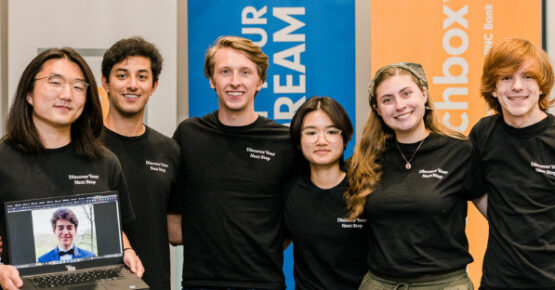Making Entrepreneurship Accessible in Rural America
Culture starts with people, not spaces.
A critical priority is to focus first on getting the right people to lead the charge and give them the freedom to build culture through the programs they offer, the attitude they bring with them, and the interactions they have with others.
This is the core of culture—the people who represent your brand. Physical space is an extension of brand and culture.

Building culture takes time.
Building culture isn’t easy, and there isn’t a recipe for it. For us, culture started by empowering those on the front line to just start trying things based on their understanding of local entrepreneurs’ needs and gaps in services—that is, to be entrepreneurial.
We found it important to embody the same principles and ethos in building the network that we were asking entrepreneurs to use in validating and standing up their businesses. In short, we needed to model the behavior we wanted to encourage.
Inside the LaunchBox culture.
We learned that there were many different ways—some tangible, other not—to build that culture, including:
- Putting entrepreneurial thinkers in charge of defining and delivering services and encouraging them to experiment.
- Openly sharing stories with staff, community, and the entrepreneurs we are supporting about lessons learned and the necessary adjustments they often signal.
- Holding celebratory events that bring together entrepreneurs and their supporters, including partners, volunteers, and local officials.
- Working to break down myths associated with entrepreneurship to make it more accessible to those who may not have considered it.
- Creating spaces with energy that are decidedly non-corporate and non-academic. This includes eclectic furniture, bean bag chairs, bright colors, communal working spaces and our motto, “Don’t quit your daydream,” painted in 3-foot letters on the wall.
- Ensuring that a visitor’s first experience is with someone who is genuinely interested in what they are trying to do, and is willing to listen and build a real connection.
- Welcoming everyone who enters with the attitude of, “If we can’t help you, we’ll find someone who can.” This is critical in helping entrepreneurs navigate often confusing and complicated entrepreneurial ecosystems. Additionally, it shows other providers in the area that we value the support they offer and are willing to send “clients” their way.
- Never telling someone their idea is “good” or “won’t work,” but focusing instead on helping individuals acquire the skills they need to make that decision for themselves.
Discover More
Dive deeper into the eight critical actions that are foundational for building entrepreneurial ecosystems that support rural communities.
- Start with engaged leadership
- Encourage and reward experimentation
- Look for common gaps in services and start there
- Provide centralized support to promote growth and scaling
- Bring an inclusive lens to everything you do
- Avoid couching success through traditional economic development metrics
- Focus on sustainability early
- Focus on culture, not physical space

Read a special note from the Kauffman Foundation about the value of the Playbook.

